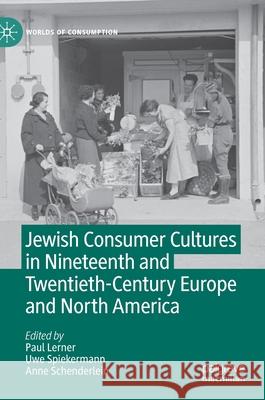Jewish Consumer Cultures in Nineteenth and Twentieth-Century Europe and North America » książka
topmenu
Jewish Consumer Cultures in Nineteenth and Twentieth-Century Europe and North America
ISBN-13: 9783030889593 / Angielski / Twarda / 2022 / 324 str.
Jewish Consumer Cultures in Nineteenth and Twentieth-Century Europe and North America
ISBN-13: 9783030889593 / Angielski / Twarda / 2022 / 324 str.
cena 501,19 zł
(netto: 477,32 VAT: 5%)
Najniższa cena z 30 dni: 497,71 zł
(netto: 477,32 VAT: 5%)
Najniższa cena z 30 dni: 497,71 zł
Termin realizacji zamówienia:
ok. 20 dni roboczych.
ok. 20 dni roboczych.
Darmowa dostawa!
Kategorie BISAC:
Wydawca:
Springer Nature Switzerland AG
Seria wydawnicza:
Język:
Angielski
ISBN-13:
9783030889593
Rok wydania:
2022
Ilość stron:
324
Waga:
0.53 kg
Wymiary:
21.01 x 14.81 x 1.91
Oprawa:
Twarda
Wolumenów:
01
Dodatkowe informacje:
Wydanie ilustrowane











